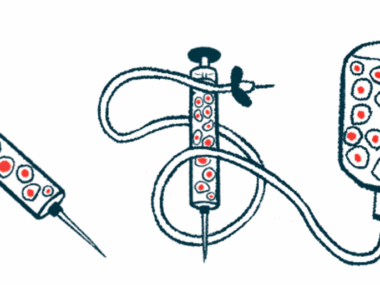Cognitive Impairment Is Best Predictor of Poor Driving by Patients
Written by |

A poor performance, due to cognitive impairments, on the Rookwood Driving Battery (RDB) — a set of tests aiming to evaluate specific neuropsychological skills that are important for safe vehicle operation — is the best predictor of poor driving among patients with Parkinson’s disease, a study has found.
Apart from RDB performance, researchers found that people who were older, and those who tended to drive shorter distances, had slower reaction times, and poor depth of vision also were more likely to be deemed unfit to drive when re-evaluated.
The study, “Driving in Parkinson’s disease: a retrospective study of driving and mobility assessments,” was published in the journal Age and Ageing.
Parkinson’s is a progressive neurological disorder characterized by a series of motor and non-motor symptoms, including tremors, rigidity, freezing, lack of attention, and declining visuo-spatial awareness — all of which can have a negative impact on a patient’s ability to drive.
These impairments often lead patients, following a referral from their clinicians or by their own will, to undergo specialist motor vehicle operation assessments to decide whether they should quit driving.
Driving assessments involve off- and on-road components. However, on-road assessments are time and resource consuming, and cannot be made available to all patients who seek to know if they are still able to drive safely. In these cases, the decision of whether or not to cease driving has to be made without the help of these gold standard tests.
“Off-road assessments, such as the Rookwood Driving Battery (RDB), have therefore been developed to predict on-road driving ability, through testing cognitive domains required for safe driving,” the researchers wrote.
However, as of now, “there is no consensus on what predicts unsafe driving in PD [Parkinson’s disease] nor a validated prediction tool to guide clinician decision-making and the need to refer for further assessment,” they wrote.
Data was culled from 86 patients with idiopathic Parkinson’s — 74 men and 12 women, with an average age of 70 — who visited a Driving and Mobility Centre in Bristol to undergo motor vehicle operation assessments between October 2012 and December 2016.
After completing the assessments, nearly two-thirds (63%) of the patients were deemed unfit to drive. Investigators then used statistical analyses to identify which factors might be associated with this negative outcome.
Their analyses revealed that a higher overall RDB score, indicative of cognitive impairments, was the strongest predictor of a negative driving assessment in these patients.
“Our finding that cognitive impairment is the biggest predictor of poor driving ability is supported by the existing literature. Cognitive testing should hence form a key component of a predictive tool of driving ability in [Parkinson’s disease],” the researchers wrote.
In addition, statistical analyses found that being older, having a driver’s license for a long period of time, driving mostly short distances, and having slower reaction times and poor depth of vision also were associated with a negative outcome on the assessments. Notably, the investigators found that a significant impairment in motor function “could deem driving unsafe despite good cognitive ability.”
The researchers noted that the study may overestimate the value of the RDB in predicting a negative result among patients, because it was part of the battery of tests given drivers and not an independent assessment.
Conversely, “the study was strengthened by its novelty, pragmatism and high number of records [more than 2,000] screened over a 5-year period,” they wrote.
This was the first study to describe patients with Parkinson’s undergoing vehicle operation assessments in the U.K., according to the researchers.
“Future prospective studies are required to better determine predictors of driving ability to guide development of prediction tools for implementation into clinical practice,” they concluded.





